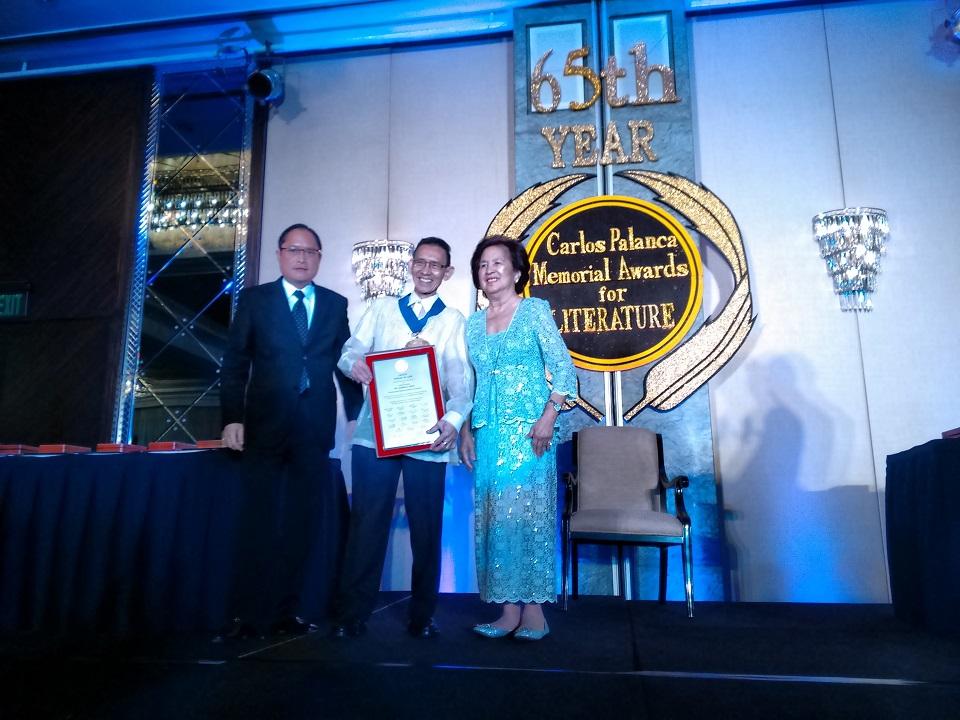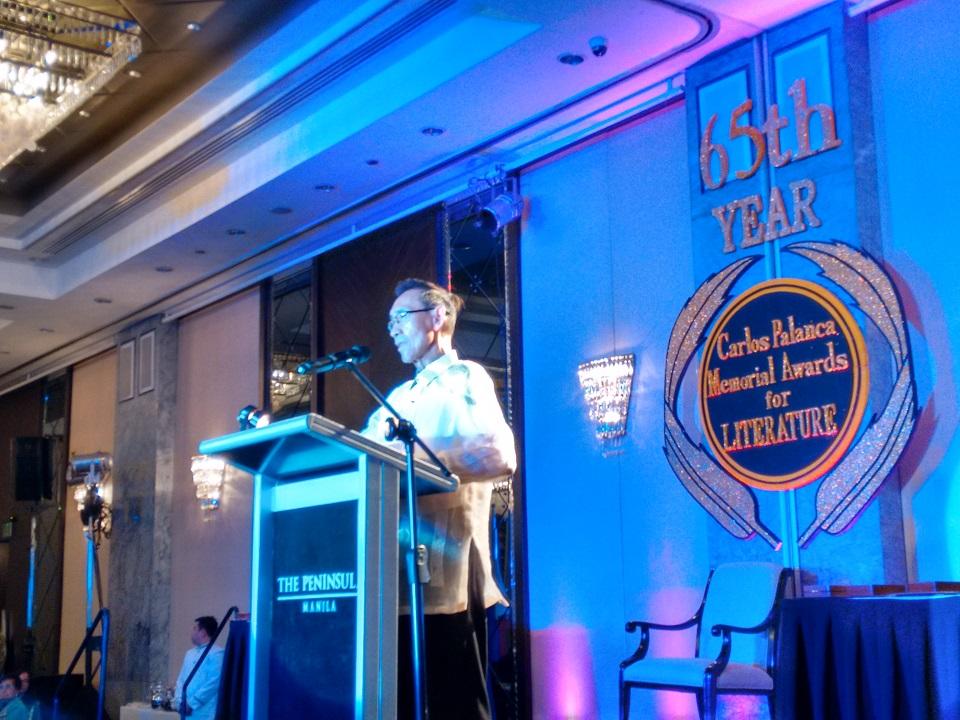ADVERTISEMENT
Filtered By: Lifestyle
Lifestyle
‘Revel and revelation’: Gemino H. Abad on writers’ goals and the power of language
Text and photos by TRISHA MACAS, GMA News

Poet, essayist, fictionist, editor of several literary anthologies, and professor emeritus of literature at the University of the Philippines Gemino H. Abad received the Gawad Dangal ng Lahi during the 65th Carlos Palanca Memorial Awards in Makati City on September 1.
The Gawad Dangal ng Lahi honors those who have excelled in their field and who share with writers the "common thread of manifesting belief in the capabalities of the Filipino and expressing their pride in the heritage of the Philippines."
Accepting the award, Abad read out his seven-page essay, "The Poem Is What You Will," which he said was a tribute to Don Carlos Palanca, the man the Philippines' longest-running literary awards were named after.
To the room full of old, new and aspiring writers, Abad spoke in detail of the importance and power of language.
"Without language, the finest invention of the human imagination, there is no memory, no history, no culture, no civilization," he said, earning thunderous applause from the audience.
Abad is perhaps most celebrated as a poet. For him, poetry pervades all types of literature.
"Whatever kind of lyric poem, whatever form it assumes, I personally want my text, my word-weave, to be reader-friendly for my ideal reader," he said.
"My sole aim is, in Horace's words, 'dulce et utile'—in Matthew Arnold's translation, 'sweetness and light'. I would say, 'revel and revelation.' I want my reader to share in the delight with language... I want my reader to share in the epiphany, the insight, the mind's grasp of a reality perceived or intuited: an inscape, a new clearing, it may be within language," he said.

Wrestling and reinvention
Abad reminded the Palanca Awards attendees what it really means to be a writer.
"Writing, then, is also work of translation: you ferry or bear across the river of words—a given language's lexicon where the words only read one another and echo their provenance or etymologies—you ferry across that river of words your own soul's burden without hurt or injury to mind's import and aim. That work of translation is also work of imagination, which has limitless possibilities," he said.
Thus, he said, any literary work is an interpretation of a human experience.
"All we know of out reality, what we call 'our works,' is our experience of it: our experience of ourselves, of human affairs, of our natural environment," Abad noted.
He also said no historical language is a given. As if challenging the audience, he said that a writer must forge language anew, refresh it, and reinvent it.
"He [the writer] must work the language even as the farmer works the soil to produce his crop. As the writer works the language, he might also note that the ground of the language he employs is his people's culture and history, their day-to-day living in their own time and space," he said.
"From that ground—his own people's culture and history—he masters the language he cultivates; he wrestles with his medium to wrest his prize which is his story or poem or play, his chief reward for the struggle, the agony, the contest with language, his Muse." — BM, GMA News
More Videos
Most Popular




